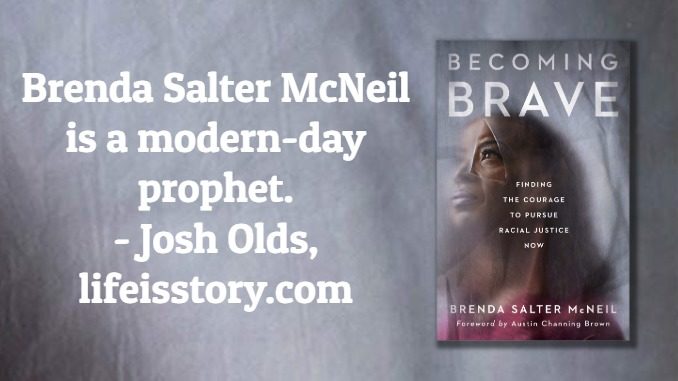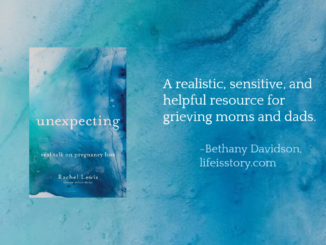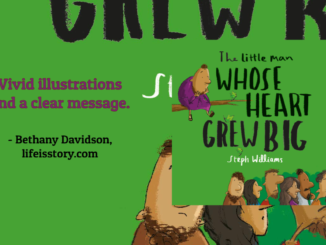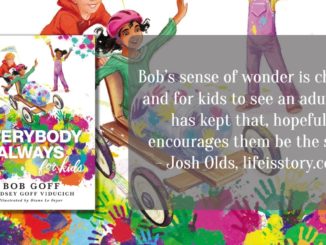
Also by this author: Heart of Racial Justice: How Soul Change Leads to Social Change, The Heart of Racial Justice Bible Study, Empowered to Repair: Becoming People Who Mend Broken Systems and Heal Our Communities
Published by Brazos Press on August 2020
Genres: Racial Reconciliation
Buy on Amazon
Goodreads

Reconciliation is not true reconciliation without justice! Brenda Salter McNeil has come to this conviction as she has led the church in pursuing reconciliation efforts over the past three decades. McNeil calls the church to repair the old reconciliation paradigm by moving beyond individual racism to address systemic injustice, both historical and present. It's time for the church to go beyond individual reconciliation and "heart change" and to boldly mature in its response to racial division.
Looking through the lens of the biblical narrative of Esther, McNeil challenges Christian reconcilers to recognize the particular pain in our world so they can work together to repair what is broken while maintaining a deep hope in God's ongoing work for justice. This book provides education and prophetic inspiration for every person who wants to take reconciliation seriously.
Becoming Brave offers a distinctly Christian framework for addressing systemic injustice. It challenges Christians to be everyday activists who become brave enough to break the silence and work with others to dismantle systems of injustice and inequality.
Dr. Brenda, when are you going to talk about justice?
That was the question that altered Brenda Salter McNeil’s entire paradigm of racial reconciliation. It has been her life’s pursuit for three decades. She had written books and given lectures. Her entire life’s work had been about justice. But had it? That question jumpstarted a line of personal questioning that led her to new answers and new actions:
- Without justice, there is no true reconciliation. In order to preach reconciliation, you must also preach justice.
- She could no longer worry about whether or not her message was sanitized and palatable to the white majority culture. She needed to speak the truth in all its prophetic fullness.
Becoming Brave is partly a memoir of that journey, partly an exploration of the book of Esther, and mostly a prophetic call for People of Color to fully step into their racial identity and heritage and white people to confront the history of their Whiteness, which negatively impacts everyone living in a racialized society.
Part-Memoir
As memoir, Becoming Brave takes readers from Dr. McNeil’s time at Occidental College, where the lack of diversity caused her to first take up the cause of racial equity and justice. This movement led to her entire ministry in racial reconciliation, one where she was enjoying personal success and great accomplishments, but, she found, not affecting the type of real, lasting change she would have liked to have seen.
The major change the McNeil finds herself making is moving backward out of the (white) evangelical culture of her academic training and forward into the Black Pentecostal heritage of her family. Pointedly, she tells the story of being in seminary at Fuller and preaching a sermon in a class on social brokenness and the need for God’s healing. A for delivery. C- for exegesis. Annoyed at the perception that she was only an “emotional Pentecostal,” she shifted her structure to what Fuller wanted—dry and academic. Her grades went up; the inner power of the Spirit seemed to fade.
Three years later, she graduated from Fuller and was invited to speak on a panel about women and racial equality. She decided to wing it and speak straight from her heart—and the Spirit. She writes: “That night, I reclaimed who I was –the Black, Pentecostal woman who is smart and speaks from the fire of the Holy Ghost!”
Salter is able to tie this change in her own life to the code-switching that most people of color engage in when engaging with the majority culture. You change your stance, your language, your demeanor, maybe even your hairstyle or appearance, all in an attempt to fit in. Salter also applies this to the story of Hadassah, who becomes Esther, who is forced to blend into a new context and culture and hide her Jewishness. This moment of reclamation is key for McNeil. It leads her on her renewed and more genuine path of prophetic ministry that calls the culture to lament, repentance, reconciliation, and justice.
Part-Exegesis
Brenda Salter McNeil uses the framework of the book of Esther to undergird both the structure of her book and as a blueprint for her own life journey. After chapter one, each chapter is introduced with a passage of Scripture from Esther, detailing her journey from a young Jewish woman in the Diaspora to part of the King’s harem to placed in a position of incredible power—and danger.
I really appreciated that Becoming Brave does more that just give lip service to its exegetical element. Although this is a book on race and reconciliation, you could read it simply for its theology and come away enlightened and educated. McNeil drills down beneath the Sunday School surface and lays out what this truly meant for Esther. This was assimilate or die.
She was not called in some elective beauty pageant to be queen. She held no real power in this position—as is evident by the deposition of the former queen, Vashti, who had dared stand up to the king’s sexual exploitation. She found herself subsumed by the majority culture. And, as long as she allowed that, she would live comfortably, if not authentically.
Saving her people requires her to be who she is, who God made her to be. To reveal her ethnicity to the king. To put herself in the crosshairs of the majority culture. To give up her comfortable life and, very likely, be put to death. McNeil uses that story to dramatize her own, and to call people of color to action. So long as they linger in the shadows and only speak of justice and reconciliation in palatable and sanitized terms, these things will only mean an assimilation into white majority culture. It will not mean diversity.
Mostly-Prophetic
I use the word “prophetic” in the sense that it is used primarily throughout the Hebrew Scriptures. Not the foretelling of the future, but the forth-telling of truth. Brenda Salter McNeil calls out people of color to reclaim their identities; to be bold in demanding justice, equity, and reconciliation; to dig into these racialized systems and expose the systemic roots of hatred that majority culture ignores.
And to that end, Becoming Brave has no qualms about calling out white people—particularly white evangelicals—for their participation and advocacy of systems that harm people of color. In clear and no uncertain terms, Salter outlines the failure of white evangelicals, as those with power, to use that power in a way that loves their neighbor.
McNeil also calls upon the power of women to stand in the gap, using their Hebrew distinction as an ezer—a term meaning warrior that’s applied most often to woman in the creation narrative, and then to Yahweh himself. By highlighting the power of women and calling on women to stand up, McNeil also counters the all-too-typical narrative of women as second-class. This empowerment of women opens us to another type of inequality (male vs female) that is also important to recognize and overcome.
Becoming Brave
Becoming Brave ends with four clear, actionable goals:
- Reclaim our identity and agency as people of color. McNeil writes that part of the racialized systems in America have led to a whitewashing of Black American history. She encourages people of color to reclaim their cultural identities and change the focus from getting white people to change to taking power and agency for themselves.
- Confront whiteness. McNeil calls white people to truly explore and understand their own whiteness. (This is especially important as “white” as a categorization came as a reaction to minority Black/Asian/Native/Hispanic peoples.) She writes that whiteness has a negative impact of everyone (including white people) and it’s crucial that white people do the brave work in confronting it.
- Repair broken systems together. Repair requires reconciliation; it requires unity. In short fashion, McNeil lists opportunities that individuals have to effect change in their local communities and contexts. It’s a huge undertaking, but we all do our part, we can create change on a national level.
- Restore the credibility of the church. The church must be the leader in reconciliation. She writes The message of the gospel, the story we must tell, infuses the work of reconciliation with hope!
Becoming Brave is an important book and Brenda Salter McNeil is a modern-day prophet, calling people of all backgrounds and cultures toward the work that only they can do to effect justice and reconciliation in their communities. It’s a much-needed slap in the face to white majority culture—firm but respectful, passionate but clear. And it’s a called to minority cultures—whether ethnic, gender, or sexual—to be brave and stand up to injustice and demand conciliation.



